The Future of Climate Authoritarianism Is Now
David Wallace-Wells, author of "The Uninhabitable Earth," reflects on the future of capitalism, the Green New Deal and the power of panic.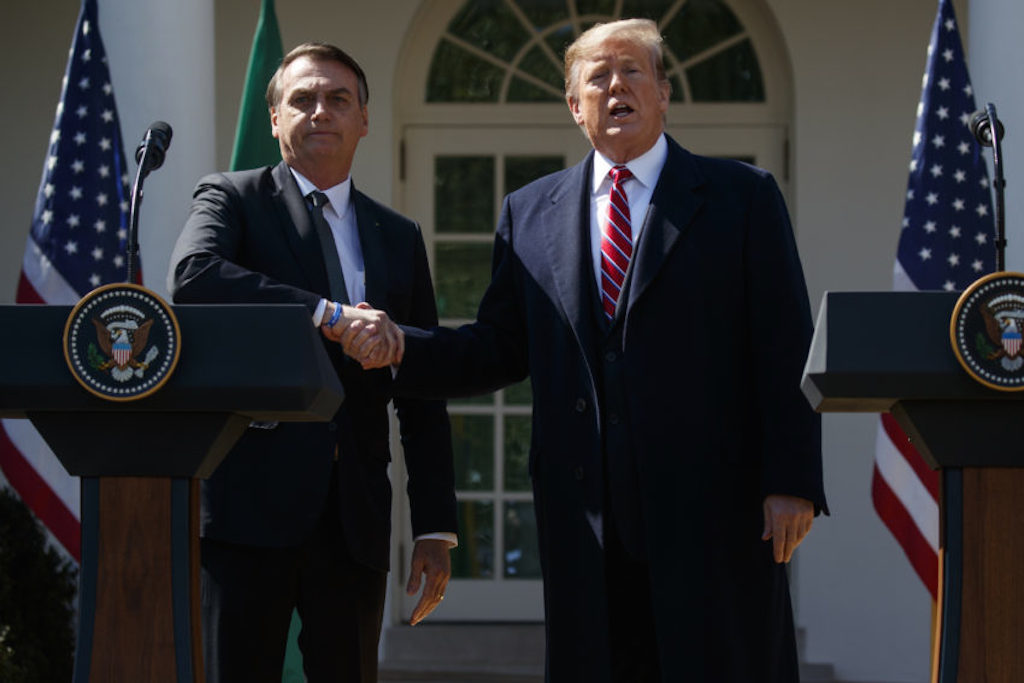 President Donald Trump and Brazilian President Jair Bolsonaro at the White House. (Evan Vucci / AP)
President Donald Trump and Brazilian President Jair Bolsonaro at the White House. (Evan Vucci / AP)
It was the kind of headline one might encounter in the science fiction of Ursula K. Le Guin or Kim Stanley Robinson. Last month, citing a new study from the British science journal Nature, Quanta Magazine’s Natalie Wolchover explored the possibility of human-caused global warming forging a world without stratocumulus clouds by the end of the century. This would raise the temperature of the planet an additional 8 degrees Celsius (14.4 F)—double the increase for which we’re currently on pace.
“To imagine 12 degrees of warming,” Wolchover notes, “think of crocodiles swimming in the Arctic and of the scorched, mostly lifeless equatorial regions during [prehistoric times].”
While the scenario outlined in Quanta and other dangers posed by feedback loops remain, for the time being, purely hypothetical, the age of climate chaos we have entered is all too real. By 2050, the U.N. projects that there will be as many as 200 million climate refugees across the globe. That number could climb to as high as 1 billion if we fail to take radical action to reduce carbon emissions. To put those numbers in perspective, the Syrian civil war that has so roiled the West had produced 5 million refugees as of 2016. As David Wallace-Wells observes in his haunting “The Uninhabitable Earth,” we are not witnessing a “new normal” but something far more terrifying: “That is, the end of normal; never normal again.”
“We have already exited the state of environmental conditions that allowed the human animal to evolve in the first place, in an unsure and unplanned bet on just what that animal can endure,” he writes. “The climate system that raised us, and raised everything we now know as a human culture and civilization, is now, like a parent, dead.”
Since its publication last month, Wallace-Wells’ book has drawn comparisons to Rachel Carson’s “Silent Spring,” and with good reason. Both explore the unique havoc we are wreaking on the environment, through carbon emissions in the former and our use of pesticides in the latter. And both are before-and-after publications that demand urgent government action—or so one hopes in the case of “The Uninhabitable Earth.”
Of course, climate change is already transforming our politics in ways we never imagined and might not yet grasp. Consider far-right Brazilian President Jair Bolsonaro’s recent meeting with Donald Trump at the White House. “Today, we don’t even have to gaze into the future, or trust that it will be deformed by climate change, to see what that would like,” Wallace-Wells writes. “In the form of tribalism at home and nationalism abroad and terrorism flaming out from the tinder of failed states, that future is here, at least in preview, already. Now we just wait for the storms.”
Last week, before a gunman driven by paranoia over immigrant “invaders” opened fire on a pair of mosques in Christchurch, New Zealand, I spoke with Wallace-Wells over the phone about the twin fates of climate and capitalism, the Green New Deal and the power of panicking about global warming. What follows is a lightly edited transcript of our conversation.
Jacob Sugarman: In “The Uninhabitable Earth,” you note that the fat part of the bell curve—the most likely outcome by the end of the century—indicates that we’ll experience a 3-degree Celsius [5.4 F] temperature increase by the end of the century. For readers who maybe aren’t that well-versed in the science, can you explain what that means for the planet?
David Wallace-Wells: I think it might actually be more helpful to look at 2 and 4-degree temperature increases, which is the difference between a best-case scenario and business as usual. At 2 degrees, the U.N. estimates we will have 200 million refugees at least, possible as many as 1 billion, which would be as many people as live in North and South America combined. I think those numbers are a little high, but the fact that they’re in the hundreds of millions at all should terrify us.
Many of the biggest cities in the Middle East and South Asia would be unbelievably hot, and that threshold may be reached as soon as 2050, which means the populations of a number of megalopolises would not be able to move around safely. They certainly couldn’t walk outside without incurring some kind of lethal risk, and that could threaten to make huge regions of the equatorial band uninhabitable by any definition that we use today, even if it would be technically habitable.
Most people think that somewhere north of 2 degrees [3.6 F], maybe 2.1, 2.2 degrees, would be a tipping point, and that ice melt would be irreversible. If we lost all of the ice sheets, it could raise sea levels by 200 feet, possibly more. So that’s what we’re looking at with conventional decarbonization, by which I mean just retiring dirty energy and replacing it with clean energy. There’s some reason to think that with negative emissions technologies, we may be able to get below 2 degrees, but I think that those hopes are sort of unrealistic.
The track that we’re currently on, which would raise temperatures by 4 degrees Celsius [7.2 F] or more by the end of this century, would mean $600 trillion in global damages. That would gobble up all the wealth that exists in the world today. It would mean a global [gross domestic product] that was at least 20 percent smaller, possibly 30 percent smaller, than the global economy would be without climate change. That’s 10 times the size of the Great Recession, only it would be permanent. Countries in the equatorial band would have the very possibility of economic growth completely wiped out by climate change. Large parts of the world that we now think of as bread baskets would turn into something much less productive. [Individual regions] could be hit by as many as six natural disasters driven by climate change at once, and the frequency of these disasters would be twice what it is today, possibly more than that.
JS: To what extent is climate change to blame for the resurgence of authoritarianism across the West? Do you agree with The Atlantic’s Robinson Meyer that Donald Trump is the first demagogue of the Anthropocene?
DWW: I guess I would say that if you were looking at the political world and trying to make projections about how climate change would transform our politics, you would probably imagine somebody like Trump, or Bolsonaro in Brazil, or even something like Brexit in the U.K. Our intuition about increasing resource scarcity will produce more energy around zero-sum politics, rather than positive-sum politics, and the retreat of nations into a more nativistic self-interest. Causality is complicated, so I’m a little reluctant to declare Trump the first demagogue of the Anthropocene, but I think we’re likely to see, at least in the short-term, more political actors who resemble Trump in those ways. And this is distressing, not just on a humanitarian and moral level, but because it will make it that much harder to take collective action.
JS: Which do you think poses a greater threat to the other—capitalism or climate change? Or are their fates inextricably bound at this point?
DWW: When we talk about capitalism and climate change, we’re talking about two systems that are so large, we can’t really ever adequately comprehend them properly, right? My personal politics continue to drift left, but when I look around the world, I see social democratic countries that are behaving just as poorly with regard to carbon and climate change as the most aggressively capitalistic ones. Even truly socialistic countries are behaving abominably on climate.
Still, I tend to think that the existing economic system has superpowered our lust for new products and material comforts, and entrenched some powerful corporate interests that are invested in the continued burning of fossil fuels in ways that have made it really difficult for us to take action. Obviously these corporations, and the policymakers who have failed to regulate them, share a greater responsibility for climate change than you or I do. But I also think it’s a little simplistic to think that these actors are singularly responsible for the plight of the planet, and that people like us are on the side of light and good.
As to how we’ll ultimately evolve, I would say that the likeliest outcome is a world that remains recognizably capitalistic but is reshuffled in profound ways by the forces of climate. Every country will move differently—some will move in totally opposite directions—but I suspect [the majority] will be oriented around the principle of profit and economic growth, even as growth will become harder and harder to achieve.
On a more individual level, it seems unlikely that we’ll have a total retreat from the values of self-improvement and material comfort that have come to dominate both the affluent West and much of the planet over the last few decades. But that doesn’t mean they’ll continue to do so indefinitely. I think we can expect all kinds of responses on a community and humanitarian level, including those [centered] around the principles of eco-socialism.
JS: We may not be on the side of light and good, but your book is very effective at explaining why individual consumer choices can never offer a solution to climate change. Why do you think this misperception is so pervasive? Is this simply a byproduct of how the media frames the issue, or are there other factors at play?
DWW: I think the media are more of an agent for neoliberal forces within the culture, which redirect political energy towards consumption. In a time of widespread if not majoritarian political discontent, these forces allow markets to continue to thrive unopposed. In some ways, they’re actually valuable. I think people should live according to their political principles, and if that means avoiding certain products or certain categories of products, that’s for the good. That may even add up to some amount of market pressure that has a political impact, which is good too.
The problem is that too many people believe they can leave their political mark on the world through their consumer choices. I don’t just mean whether you’re vegan or eat meat, whether you buy a lot of airplane tickets or stay home, but even what kind of movies you watch and pop you listen to. Beyoncé is probably a political force for good in the world, but [buying] her music is not politics.
JS: While we’re on the subject of billionaires, how do you account for their increasing fascination with space exploration? Both Jeff Bezos and Elon Musk have expressed a desire to fund such projects, seemingly in lieu of trying to preserve life on earth.
DWW: This new plutocratic class is not just enormously well-capitalized, but its members seem to see themselves as world historical figures, with almost godlike ambitions. They have accumulated fortunes that were previously only available to nation-states, and operate in quasi-political and regulatory independence, without all that much tax burden. Faced with the existential crisis of climate change, which the nations of the world are proving inadequate to the task of solving—at least at the moment—you’d think these billionaires would feel compelled to act, if only to satisfy their own egos. I don’t have a good answer for why that hasn’t happened.
[In an abstract sense], they are interested in the survival of the human species. They are really worried about asteroid impacts, and talk a lot about colonizing other planets as a way of hedging our bets against that kind of catastrophic event. But an asteroid is not going to hit us in the next 30 years. We can see enough of outer space to know that. And we are about to be hit by an equivalent impact here on earth in exactly that time frame, which is also, we should say, a time frame that all of these people will live to see. Bill Gates has made significant investment in the [development] of carbon-capture technologies, [but most of] the people who have meaningful resources to help us are not. They don’t even really seem to be interested in thinking about how they could.
JS: Jay Inslee, the governor for Washington, has made climate change the centerpiece of his presidential bid. It seems unlikely that he can win, but what kind of utility can a campaign like that have?
DWW: I think Alexandria Ocasio-Cortez has transformed the [Democratic Party’s] climate politics in ways no one would have anticipated even a couple of years ago, [but] I’ll say two things about Jay Inslee: One is almost certain to happen, and the other one is much less clear. The first is that he’s sure to make the issue more central to the primary campaign. If he’s ever on a debate stage, even if he’s [just] campaigning, he’s going to force all of the candidates to talk about climate change more directly. This has already happened to a certain extent with the Green New Deal. There are still major questions about its [implementation], and how its authors might achieve the goals they set out in that document, but the fact that virtually every major democratic presidential candidate has endorsed legislation of that scale and ambition is a major, major change.
In the more speculative realm, I think it’s quite possible that he makes himself an appealing vice presidential pick for whomever does win the nomination. For all of his climate activism, which is laudable, he’s [still] a white, business-friendly technocrat, with executive experience, and you can imagine that being useful on a demographic level [if nothing else]. On top of that, I think it’s quite possible that he establishes a kind of climate constituency that other democratic candidates would want to scoop up.
JS: It’s true that a plurality of Democratic hopefuls have backed the Green New Deal, although I wonder just how committed they really are. Should support for the bill be a litmus test of any 2020 presidential candidate?
DWW: Given how nebulous it is, I see no reason why not. You’re not really committing to anything that’s all that hard. I think once the Green New Deal evolves into meaningful legislation, which may not actually happen until we have a front-runner who can shape the proposal with their own vision, things will get more difficult, because there will be trade-offs and compromises, particular things emphasized and particular things de-emphasized. But as for the basic proposition that we should build a climate policy out of what the U.N. says that we need to do, and that we should make sure that the policy benefits the people most in need and protect those most likely to suffer from climate change, there’s really no excuse for not endorsing it.
JS: There’s a strong temptation in liberal circles, particularly with a climate denialist like Trump in office, to blame the big bad Republican Party for our current predicament. Can you explain why that idea is at least somewhat misguided?
DWW: I think fossil fuel companies are evil. I think their campaigns of disinformation and denial over the last few decades are unconscionable and criminal. And I think that the way that those interests have conquered the Republican Party, turning it into a force for climate inaction and, in many cases, outright denial, is a feature of that villainy. I certainly wouldn’t want to excuse the Republicans themselves; their behavior has been completely gross.
But climate denial is really only in the United States. There’s a little bit of it in the U.K. There’s a little bit of it in Russia. No party in the world is as resistant to the intellectual proposition of climate change and the need for climate action as the American Republican Party is. Yet basically no country in the world is doing better than we are with emissions. So I think that the problem is just bigger and thornier than Republican opposition, and obviously that the path to aggressive climate policy in the U.S. should run through the legislatures. Those legislatures have been captured by [corporate] interests, but I don’t think that the reason that we are where we are with emissions, either in the U.S. or globally, is because of the evil of the Republican Party. I think it’s because collectively, we have been really reluctant to take action of any kind.
We forget that the Democratic Party had total control of the government for 18 months, starting in 2009, and did not act. I say this as someone who was cheering Obama on in those years. I had not yet really woken up to the scale of this threat and thought it was a totally reasonable calculation to prioritize health care after the stimulus package. I certainly don’t feel that way now, but I also think that we have to understand that no one has acted as aggressively on this issue as the crisis demands. Blaming a single party for the global problem is a little bit of a red herring that may allow us to feel better about our own inaction.
JS: When you first published your piece in New York Magazine, you were accused by some of engaging in alarmism. How do you respond to those criticisms, and can you make the case for panicking about climate change?
DWW: I would say the reception was mostly positive, but a vocal minority of scientists took issue with it on two fronts. One was that they thought it was irresponsible factually, and the other was more at the level of rhetorical strategy. I did not consider the first set of criticisms to be valid. In response, we quickly published a fully annotated version of the piece that showed where everything had been sourced, which demonstrated that while some of my reporting may have been news to [many of] those who were reading the article, it was all coming from pedigreed journals and established scientists.
The rhetorical question is a different argument. I think that I’m more sympathetic to the people who took issue with it on those grounds, even though I totally disagree with them. If the science is terrifying, if it tells us that at 4 degrees of warming, we could have a global GDP that is 30 percent smaller than it would be without climate change, if it says that we would have more than twice as much war as we have today, if it says that we could have at least hundreds of millions of climate refugees and possibly more, if it says that our grain yields could be half as full as they are today, and we would have to feed 50 percent more people, I think it is [our responsibility] to tell the truth and not to shy away from it in the name of rhetorical strategy.
The more that I learned about the story, the more I saw that this really would require, as the U.N. says, a global mobilization on the scale of World War II. That is not something that is on the table at all politically right now, and I think we need a political awakening to make it happen. Fear can be one way that we shake people from their complacency. When Rachel Carson published “Silent Spring,” it was criticized for being hyperbolic and alarmist, but it led very directly to the ban on DDT, and indirectly to the establishment of the EPA. Obviously, those are huge victories for the environmental movement, and they were achieved because she fucking terrified us.
JS: It seems increasingly easy to succumb to a kind of “climate futilitarianism,” which is not your phrase but one that you very artfully employ in your book. How do we resist that impulse when our president still questions the cause of global warming and our Democratic leadership is bullying child protesters?
DWW: I think we need to have a vision for a path forward that at least makes use of these intuitions, because they’re only going to get more widespread over the coming decade. We don’t want to be in a place where our climate activism is considered vacuous or naïve, because it’s so discordant with the world unfolding on the nightly news. There’s a need for optimism, too. I don’t think we can just say, “The world is over. The world is ending.” I don’t feel that it is. I mean, I think it’s really important to understand that we will find a way to live in these new conditions, however harrowing they get. And it will always be the case that we can write the story of the future of the climate, even if we get to a really hellish level of warming.
But we don’t want to get to a hellish level of warming. We want to take action sooner than that, and so we want to take control of those levers as quickly as we can, with as much force as we can. I think we want as many people on board as possible, and that means reaching them however they can be reached, including through panic and alarm.
Your support matters…Independent journalism is under threat and overshadowed by heavily funded mainstream media.
You can help level the playing field. Become a member.
Your tax-deductible contribution keeps us digging beneath the headlines to give you thought-provoking, investigative reporting and analysis that unearths what's really happening- without compromise.
Give today to support our courageous, independent journalists.
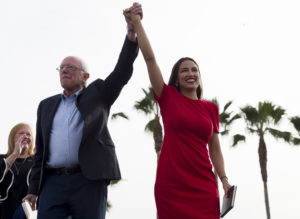
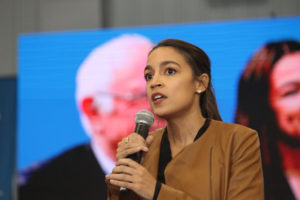


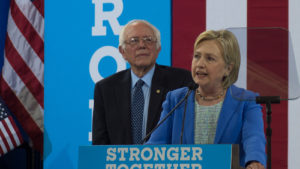
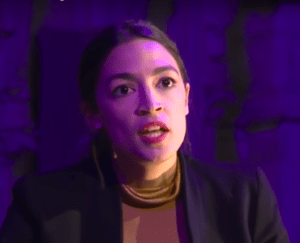
You need to be a supporter to comment.
There are currently no responses to this article.
Be the first to respond.